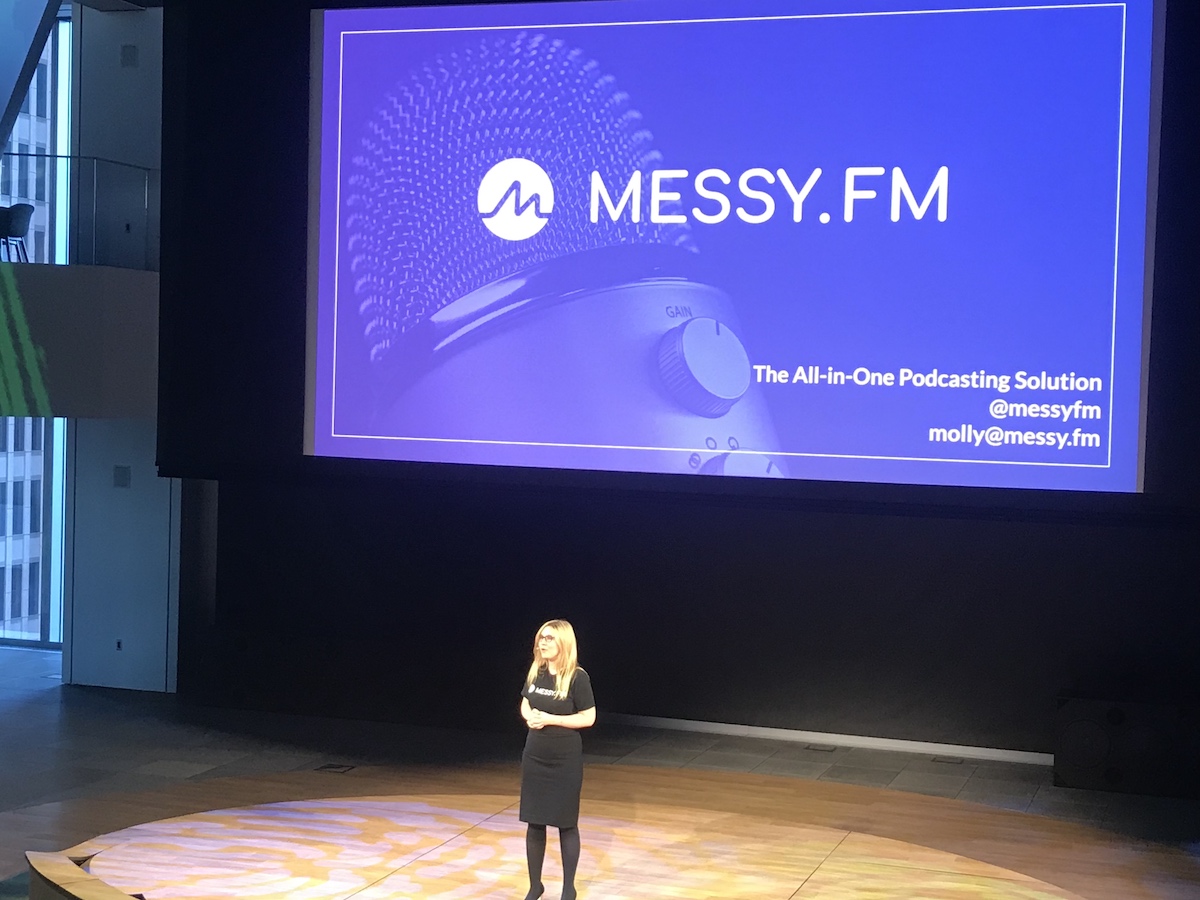Corporations aren’t often thought of as innovators. They can be bureaucratic, stodgy, slow — but they’ve also mastered processes that keep their large ships on course. Conversely, startups are the new-idea guys. They’re fast-moving, scrappy, lean — but their leaders often lack the expertise to know where to grow next, or the resources to get there.
Both sides can learn from each other, if they create space to foster those relationships.
One way partnerships can happen is by corporates incubating startups through institutional programming. A prominent example is Comcast NBCUniversal’s LIFT Labs Accelerator powered by Techstars, which offers cohorts of media-focused startups seed funding, office space at Philadelphia HQ and mentorship. Around 100 mentors assisted 11 startups in the 2019 program.
The accelerator was essential as Molly Beck grew her business, the Orlando-based founder of Messy.fm said last week during an Introduced by Technical.ly conference panel. Messy.fm’s platform allows users to record, edit and publish their own podcast episodes, and Beck left the LIFT Labs program in October 2019 with 28% growth in shows published, as well as multiple paid partnerships with Comcast NBCUniversal teams. Over the course of the accelerator, Messy.fm shifted from B2C to B2B, serving mostly enterprise clients, at the advice of her Comcast mentors.
And a big reason Comcast hosts the LIFT Labs accelerator in the first place is to learn from companies working in fields relevant to its own work. Advanced connectivity, future of work, interactive and immersive experiences and personalized experiences were the focus areas picked for the latest cohort, based on the telecom giant’s 2020 business priorities. There’s a two-way knowledge sharing that happens when professionals of such different organizations come together, said Comcast VP of startup engagement and LIFT Labs head Danielle Cohn.
But there are less-intensive ways to support small businesses than a monthslong accelerator, too. Corporates can buy services and products from local small businesses, or offer physical space for startups’ meetings or events. For Messy.fm, having Comcast as a paying customer — and the peacock logo listed on the platform’s website as a result — holds weight for references, Beck said.
Over at Stanley Black & Decker (SB&D), VP of Business Development Marty Guay is focused on emerging technologies, corporate innovation and startup ecosystems. While corporations need to solve for synchronization, Guay said, startups can move fast to solve problems as soon as they arrive.
The hardware corporation’s leadership recognizes that the vast majority of so-called innovation in the world is happening elsewhere, said the VP, so SB&D knows it needs to pay attention to those smaller companies. In Baltimore, where the company employs 1,600 people at its global tools and storage headquarters in the suburb of Towson, SB&D runs a makerspace, networks with startups for the sake of identifying partnership leads and has commissioned app development from local dev firm SmartLogic.
“We either live in the world we live in, or we build the world we want to live in,” Beck said, echoing a sentiment from Guay. When a corporation buys from a startup they believe in, “it is not charity” — it’s building a better collective future, where problems are solved differently with new thinking, Beck said.
Outside of product development and very much as a result of the COVID-19 pandemic, corporate workplace culture has become more startup-like in recent months: Companies that rejected remote work before have been forced to embrace it. And as we all face unprecedented challenges, there’s more room for the employee to bring their whole selves to work. In her team’s daily standups, “we don’t just talk about work,” but the news, or caring for kids and parents, Cohn said. “We see more of each other’s lives now.”
Check out more tidbits from the Philly Tech Week 2020 presented by Comcast session, moderated by Technical.ly DC’s Michelai Graham and including URBN’s Emily Kaplan, in this tweet roundup:







